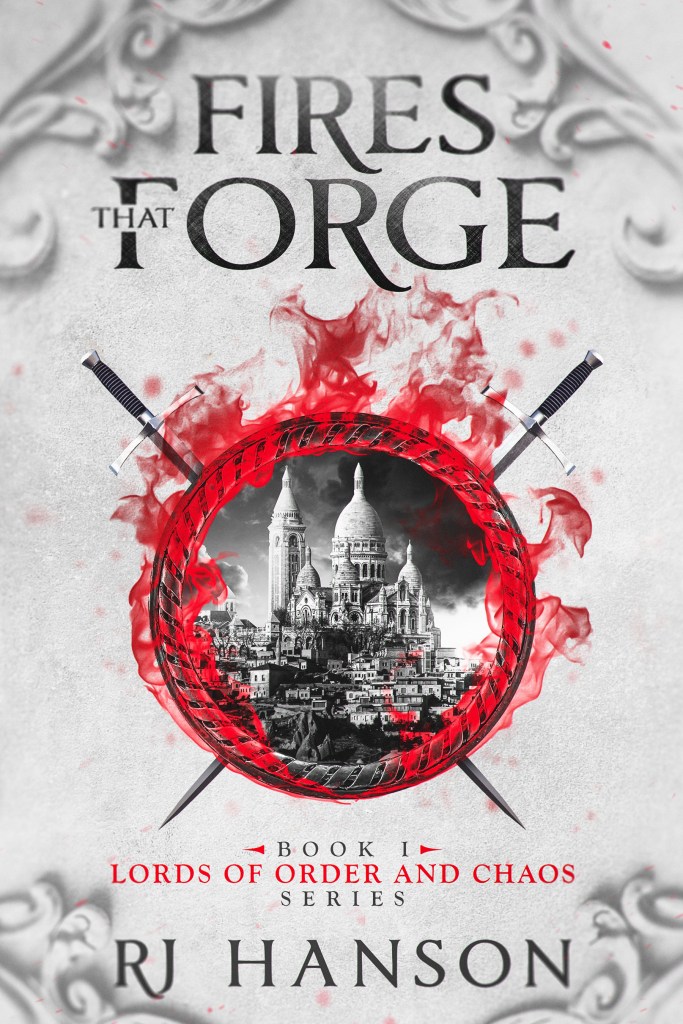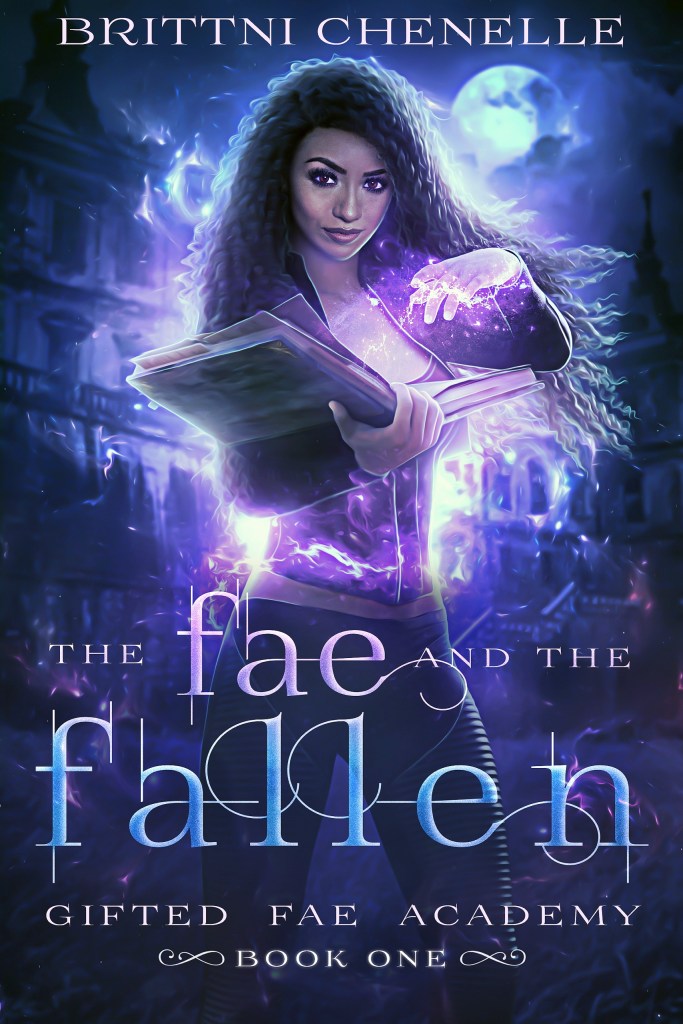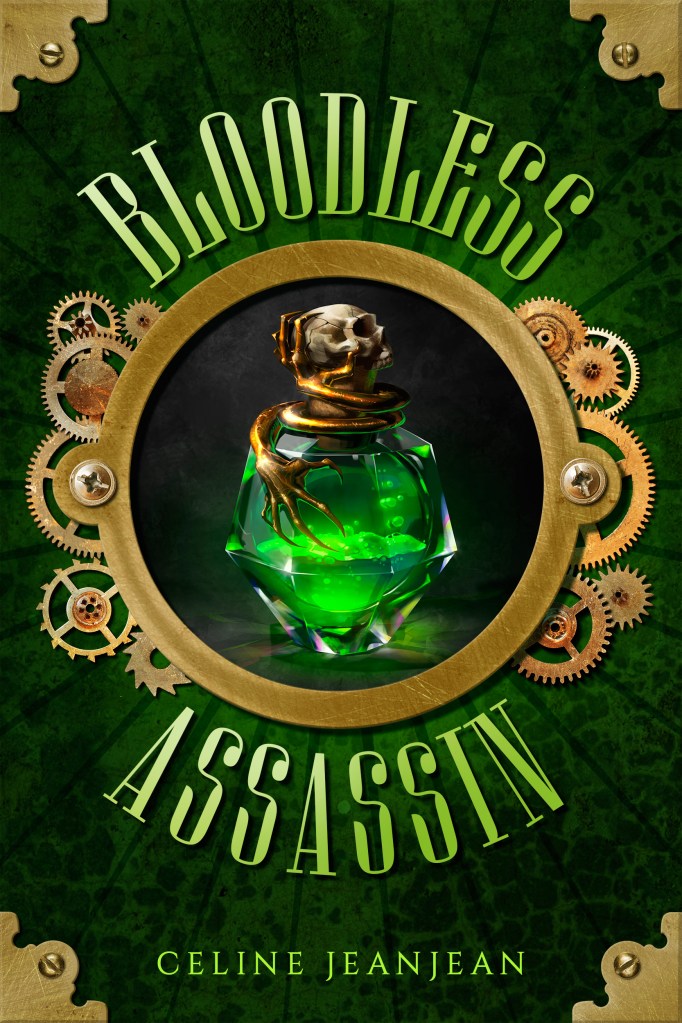General Housekeeping:
First and foremost, thank you to the authors again for sharing their literary world with the Critiquing Chemist and the Bookish Boffins!
With the following three SPFBO eliminations, The Critiquing Chemist and her Bookish Boffins are 7/10ths of the way through Phase One. Elimination posts, such as this one, will serve as a general announcement regarding the titles to be cut with a short spoiler-free overview included for each novel. In the following days, the spoiler-free overview will be expanded upon in a full review post for each eliminated novel. That being said, it would be appropriate to add the following disclaimer that DNF books will not have their own post outside of the initial elimination one. These full posts will follow the traditional formatting style for reviews on The Critiquing Chemist by including a spoiler-abundant insight section in addition to the overview sans spoilers. The eliminations and semifinalists will ONLY be announced in specific posts regarding those aforementioned topics and not in the individual novel full reviews.
Without further ado, our seventh set of eliminations can be found in the next section. Please keep in mind that these titles are in no particular order or ranking, whether within this post, or the rest of our Phase One cuts. Click the appropriate link to view our first, second, third, fourth, fifth and sixth sets of eliminations.
The Fae and the Fallen by Brittni Chenelle
Set in a world much like our own with the crucial addition of individuals either exhibiting powers (gifted) or those without (serfs), The Fae and the Fallen takes place at Gifted Fae Academy, a school for the gifted. This story alternates narration between the two main characters, Reina and Kaito, whose complex history provides ample fodder. The audiobook was great for this style of writing as their voices brought more depth to the characters. These two were friends as young kids, but they later grew apart when Kaito gained his powers and became one of the most gifted students at their school while Reina still remained a serf. Gifted students often practiced their touch magic on serfs, and Reina was often the bullied target of Kaito. The paths of Reina and Kaito are further intertwined when they are both admitted to the Gifted Fae Academy as a result of Reina’s incessant belief she belongs there, even though her powers don’t seem to exist. At the academy, students train in hopes of ultimately becoming Fae, the protectors of their world; the celebrity status that often accompanies the position helps with motivation, too. This angsty story (seriously, so much angst) follows the two leads through their ups and downs at the academy, which heightens as it is hinted that there is something deeper going on. Chenelle subtly weaves parallels in the magic realm of the story to our current underlying issues of class, justice, and what it means to ‘do right’ by society. This culminates in an exciting end scene that definitely leaves the reader wanting more.
The novel was enjoyable overall, though not something that I would normally pick up. The characters are well developed, even though there is a slow burn to find out some of the heavy secrets of the characters, like Reina’s traumatic past. As characters, Reina is persistent, kind, and not easily ruffled, and it was enjoyable to see her cool and collected self shine in the story, especially when it irritates Kaito. Kaito on the other hand, is an ass. He is egotistical, manipulative, and selfish. Their yin and yang was interesting but also at times very frustrating as Kaito’s toxic behavior often flirts with, and in some cases, crosses the line of being abusive. The alternating point of view in the novel will sometimes have you sympathizing with his character flaws, but at the end of the day, he is still a toxic person who Reina keeps getting pulled back to and who I genuinely had a hard time rooting for.
I was disappointed that the novel spends more time on the angst and love triangle than it does on building relationships between Reina and others or on the magical or political aspects. It seems that there was a missed opportunity to add further dimension and depth to the world that has been well laid out. The plot was interesting, though it seemed to build very rapidly at the end. I was worried that this was ‘another magic school’ novel, but it kept my interest and felt fresh. There was good foreshadowing that something was afoot, and I am definitely interested in what happens in the next book.
Bloodless Assassin by Celine Jeanjean
Aside from the entertainment industry, my only exposure to assassins (that I know of anyway) has been limited to those participating in live-action games on my college campus. Let’s just say that it involved a lot of nerf guns in studious places. Now, if I asked you to picture an assassin, what comes to mind? What qualities and abilities would you expect them to possess in order to be successful in their chosen profession? Perhaps it entails an individual shrouded in mystery and clad in black who sticks to the shadows. Maybe it’s someone skilled in the art of deception who’s capable of turning the most innocuous item into a deadly weapon. Your fictional fiend may reflect someone whose work is instantly recognizable and whose name alone instills terror in the hearts of everyone who hears it. These represent the kind of persona Longinus Pendergast aims to achieve with his alter ego, The Viper. What sets him apart from your everyday, garden-variety hit man? The eponymous bloodless assassin has an aversion to blood, not only because employing any method that spills a single drop of it is uncouth for any self-respecting assassin (there are far classier ways to dole out death), but also because he experiences a visceral, debilitating response whenever any of his senses are exposed to it. Assassins – they’re just like us!
Originally released in July 2015 under a different name (as The Viper and the Urchin, now the name of the series instead), The Bloodless Assassin by Celine Jeanjean is book one of eight published works thus far. The striking steampunk-stylized cover drew me in, and the blurb sold me on the story within. To start, this narrative features two interesting and well-developed main characters. Jeanjean has crafted Longinus as an eclectic individual who slays figuratively in his outfit choices and literally in his work. He is an avid rule follower when it comes to things like whom thou shalt not kill, the proper etiquette in a duel, and the appropriate attire to don for a window exit – although, most of these rules he cites are probably known only to him. Given Longinus’s mannerisms, I envisioned him as someone like Sheldon Cooper from The Big Bang Theory. In this tale, Longinus (The Viper) reluctantly shares the literary stage with Rory (The Urchin), a sarcastic young woman who’s blackmailing him after she discovers his repulsion to blood. After observing his skills with a blade, she sees it as an opportunity to finally achieve her dream of becoming a revered swordswoman who travels to far-off places. Her character reminds me of Lila Bard in the Shades of Magic series by V.E. Schwab as someone focused on reaching their end goal and seemingly one insult away from making a rash decision, giving in to anger. While Longinus and Rory see most things differently and make assumptions about each other, they soften each other’s edges.
The supporting cast, though limited in their ‘screen time’ (I was using the Kindle app, after all), have enough of a presence to evoke a full range of emotions (Ughhhhh, Jake). As for the setting, the reader explores only a sliver of the world, limiting the scope to the city of Damsport and its history. Within this Victorian-esque locale, Jeanjean has done a wonderful job of describing and incorporating many diverse venues for Rory and Longinus to frequent. The writing style in general is expressive and entertaining. And I would be remiss, as a critiquing chemist, if I didn’t note the use of alchemy throughout the tale, most prominently as the method for preparing and analyzing Longinus’s poisons. Other more fantastical feats are also achieved by alchemically-enhanced means, although I would’ve liked more details as to how they worked. For me, it felt like it took a while for the story to really take off – I was less interested in the blackmail plot point and more so in the goings-on beyond Longinus and Rory’s bubble. The first third of the book underscores the quirks of our two anti-heroes, the next third introduces mysterious deaths and conspiracies, and the last third takes out all the stops, barreling toward the ultimate conclusion. I would be interested in seeing what happens next in The Black Orchid!
Fires that Forge by RJ Hanson

In the early hours of the morning in the grim city of Moras, a double murder is committed, setting into motion a time-sensitive investigation to find the true murderer. Told from the perspectives of Silas, a knowledge-hungry doctor, and Dunewell, an upright inspector, the yarn unravels at a steady pace, leaving clues for the reader to pick up and examine as it moves along. Several events are told from the point of view of both Silas and Dunewell, which was an interesting plot device, and one I enjoyed, as I tried to cross-reference actions and dialogue and interpret an unreliable narrator’s thoughts. I later learned that the author, Hanson, has an extensive law enforcement background, which plainly shows through with his sophisticated handling of the murder investigation pieces of his plot.
The first half of the story is more like a Sherlock Holmes murder mystery, which then takes a surprising turn into a more heavily magical second half. This shift took a little getting used to because I was thoroughly enjoying the role of armchair detective as I followed Dunewell in his investigation. However, the steady action, interesting characters, and suspense kept me hooked, and I rolled with the punches toward a satisfying conclusion.
One minor issue, common among the first books in a series, is the sheer amount of plot machinations happening in the story: a murder investigation, sinister vampire activity, a complex religion, a secret society, a legend about fallen champions, a possible love curse, etc. It feels like a lot of set-up for later books, which may be necessary, but also can be overwhelming for a reader getting acquainted with this world for the first time.




[…] link to view our first, second, third, fourth, fifth, sixth, and seventh sets of […]
LikeLike